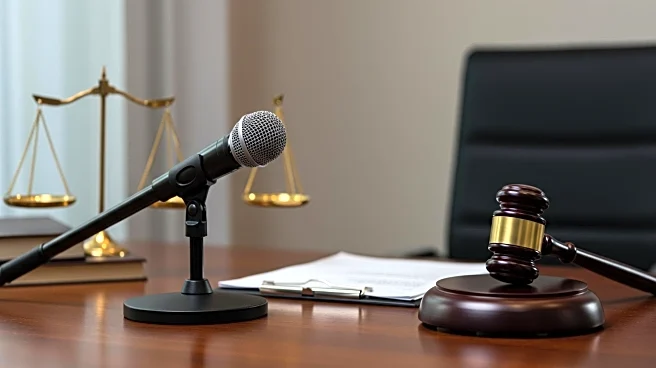What's Happening?
Drake's legal team is actively pursuing evidence in a lawsuit against Universal Music Group (UMG) concerning the promotion of Kendrick Lamar's diss track 'Not Like Us.' The lawsuit claims that UMG, under CEO Lucian Grainge's leadership, deliberately boosted the track's popularity to undermine Drake's brand. Drake's lawyers are requesting access to Grainge's emails and text messages related to the song, as well as an unredacted version of Lamar's record deal with Interscope Records, a UMG subsidiary. UMG has resisted these requests, arguing that Grainge had no significant involvement in the track's release or promotion. The case is currently under review by Judge Jeannette A. Vargas in New York federal court, who is considering UMG's motion to dismiss the lawsuit.
Why It's Important?
This legal battle highlights the competitive dynamics within the music industry, particularly between major artists and record labels. The outcome could influence how record labels manage artist relations and promotional strategies, potentially affecting contract negotiations and brand valuations. If Drake's claims are validated, it may set a precedent for artists challenging label practices that they perceive as harmful to their careers. Conversely, a dismissal could reinforce the autonomy of record labels in promoting content. The case also underscores the role of legal discovery in revealing internal communications and business strategies within the music industry.
What's Next?
The next steps in this legal dispute involve Judge Vargas's decision on UMG's motion to dismiss the case. If the motion is denied, the lawsuit will proceed, potentially leading to further discovery and a trial. Both parties may continue to negotiate or seek settlements outside of court. The music industry and legal observers are closely watching the case for its implications on artist-label relationships and the handling of defamatory content.
Beyond the Headlines
The lawsuit raises questions about the ethical responsibilities of record labels in promoting potentially defamatory content. It also touches on the broader issue of artistic expression versus reputational harm, a recurring theme in the music industry. The case could prompt discussions on the balance between competitive marketing strategies and the protection of artists' public images.









